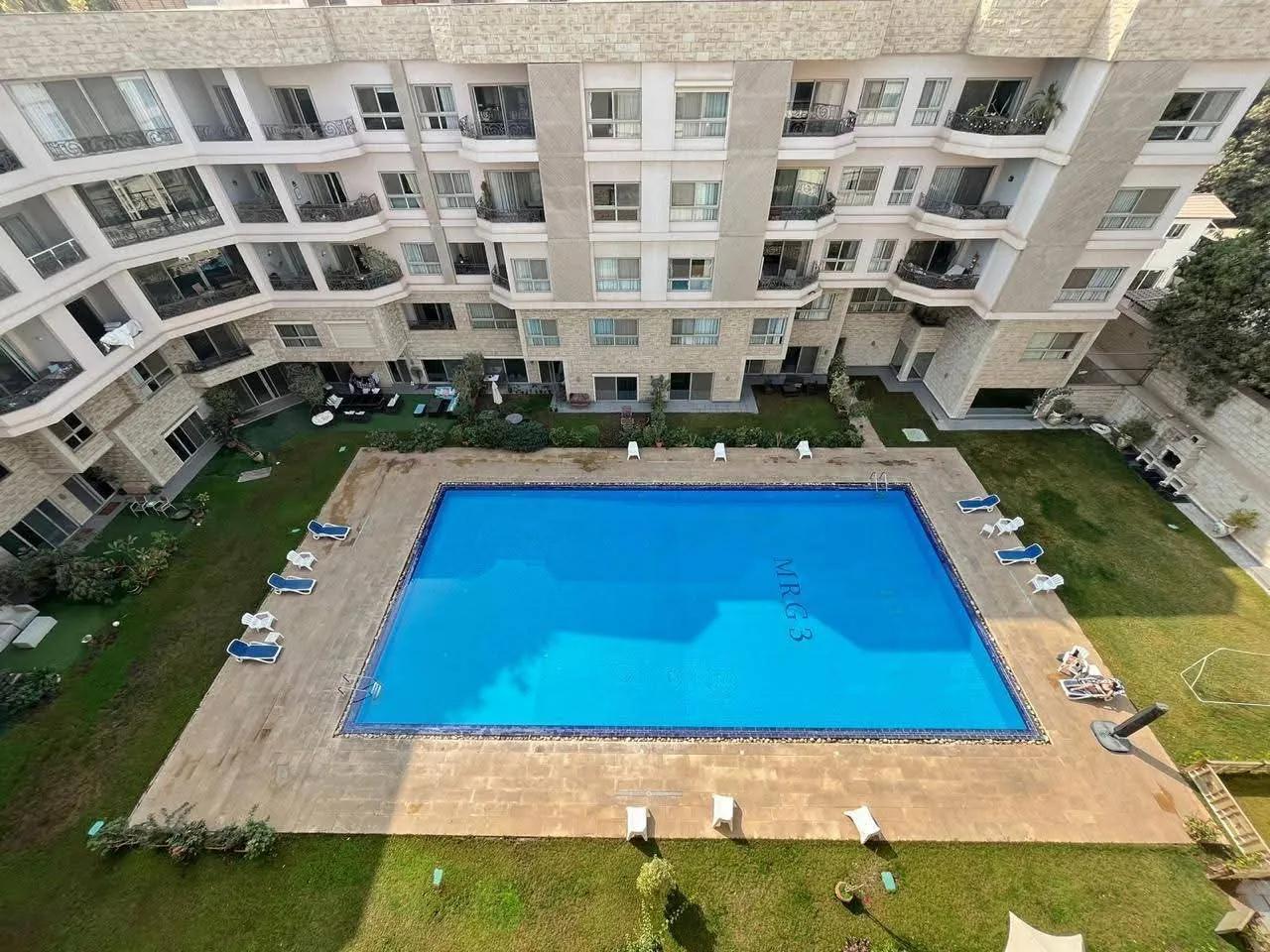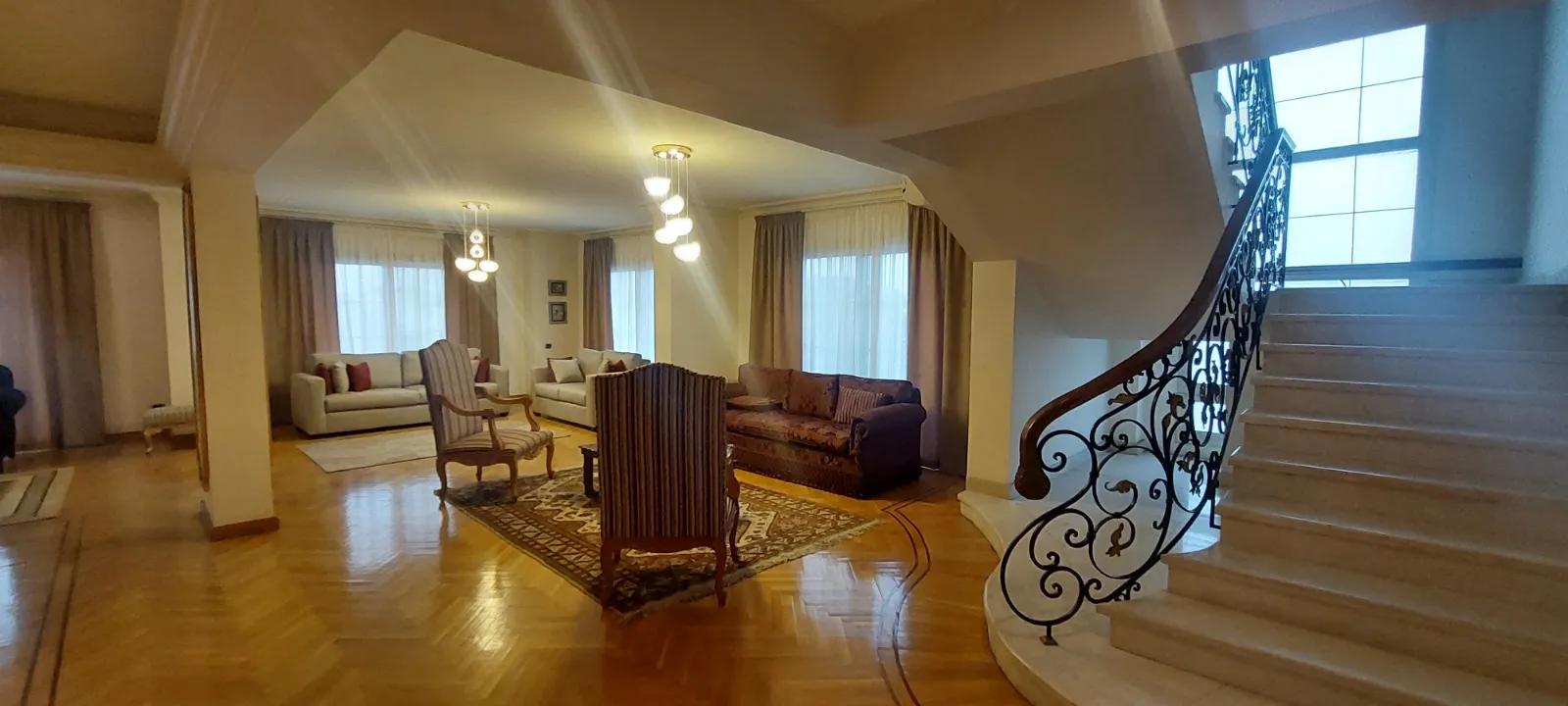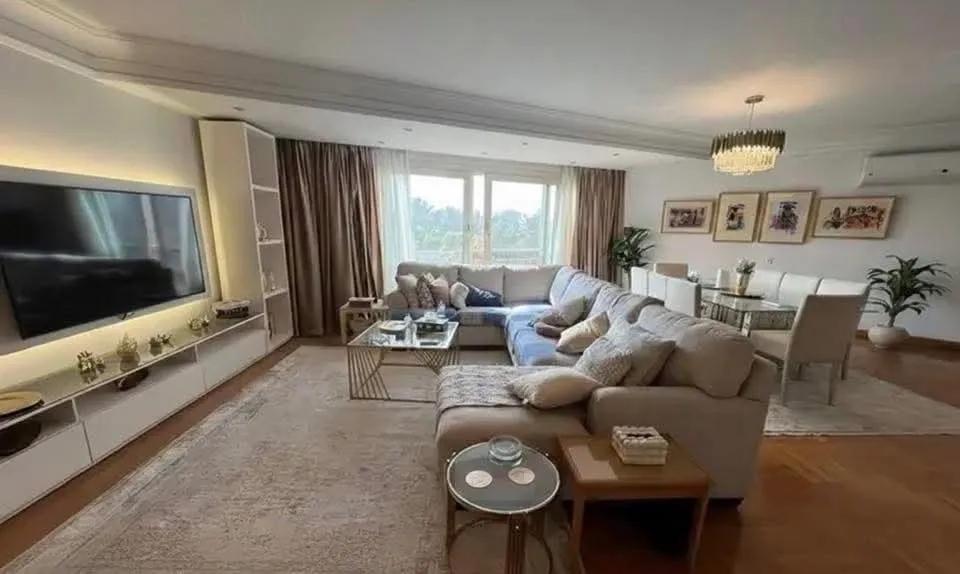The Essential Steps to Renting an Apartment in Maadi Cairo
Author
House Point Egypt
Time
9 Min.
Language
English
Created:
10/3/2025
Updated:
10/3/2025
The Essential Steps to Renting an Apartment in Maadi, Cairo
Introduction: Why Maadi is Cairo’s Premier Rental Destination
Maadi, a verdant, tranquil suburb of Cairo, stands as one of the most sought-after locations for both local professionals and the vast expatriate community. Often described as a 'green oasis,' its tree-lined streets, spacious properties, and vibrant, yet relaxed, atmosphere offer a stark contrast to the typical bustle of the Egyptian capital. From the upscale villas of Sarayat Maadi to the bohemian cafes of Degla, Maadi provides a diverse range of living options.
Renting an apartment here, especially for newcomers, requires a clear, step-by-step strategy to navigate the local market nuances, secure the best value, and comply with legal requirements. This comprehensive guide breaks down the entire process, ensuring your move into your perfect Maadi home is smooth, informed, and stress-free.
Phase 1: Planning and Preparation – Laying the Foundation
A successful apartment search begins long before you start viewing properties. Diligent preparation is the key to efficiency and negotiation power in the Maadi rental market.
Step 1: Define Your Budget and Financial Framework
The first and most critical step is establishing a realistic budget. Renting in Maadi involves more than just the monthly rate—it requires significant upfront capital.
-
Monthly Rent Range: Be specific about the maximum Egyptian Pound (EGP) or, sometimes, US Dollar (USD) amount you can comfortably allocate.
-
Upfront Costs: In Egypt, landlords typically require:
-
Security Deposit: Commonly one to two months' rent, refundable upon lease completion.
-
Advance Rent: It is very common, particularly for high-end properties and expat-oriented landlords, to request three to six months' rent paid in advance (quarterly or semi-annually).
-
Agency Fee/Commission: If using a real estate agent (which is highly recommended for efficiency), expect a one-time fee, usually equivalent to one month's rent.
-
-
Utility & Maintenance Costs: Factor in monthly utility bills (electricity, water, gas, internet) and potential annual building maintenance fees, which vary by location and building type.
-
Furnishing Level: Decide between Fully Furnished (move-in ready, higher monthly cost), Semi-Furnished (kitchen units, appliances, ACs, moderate cost), or Unfurnished (lowest monthly rent, high upfront cost for furniture)
Step 2: Select Your Preferred Maadi Micro-Neighborhood
Maadi is a geographically diverse area, and the sub-neighborhood you choose will define your lifestyle, commute, and rental price.
Tip: Shortlist two adjacent areas to maximize your viewing options.
Phase 2: The Search and Vetting Process
Once your planning is complete, the active search begins. This requires leveraging the right resources and a systematic approach to property vetting.
Step 3: Utilize Effective Property Search Channels
In Maadi, a mix of digital and traditional methods is most effective for finding available apartments.
-
Online Property Portals: Websites like Property Finder, Aqarmap, and others list the majority of professional real estate agency properties. Use their filters aggressively to match your budget and size requirements.
-
Real Estate Agents (Semsar): For foreigners, hiring a reputable, expat-focused real estate agent is highly beneficial. They have access to unlisted properties, can manage the cultural nuances of negotiation, and help draft a bilingual contract. Their fee is offset by the time and stress saved.
-
Local Networking: Facebook groups dedicated to Maadi rentals and local classifieds can sometimes offer direct-from-owner deals, but require more caution and due diligence.
-
The Bawab (Building Doorman): For older buildings, the bawab often knows of vacancies before anyone else. A small tip (baksheesh) can open up opportunities.
Step 4: Systematize Your Property Viewings and Checklist
Schedule multiple viewings in a single day, focusing on your shortlisted neighborhoods. Use a checklist to compare units objectively, looking beyond aesthetics.
-
The Natural Environment:
-
Natural Light: Check all rooms at different times of the day, if possible. Is the apartment dark, or does it receive sufficient sunlight?
-
Street Noise: Visit during peak traffic times. Is the noise level acceptable, especially in bedrooms?
-
Neighborhood Vibe: Walk the street. Is it clean, secure, and what services (pharmacy, supermarket, coffee shop) are nearby?
-
-
The Unit Condition & Utilities:
-
Water Pressure: Run the shower and taps in all bathrooms and the kitchen simultaneously to check pressure and water heater functionality.
-
Air Conditioning (ACs): Test all units—they are essential in the Egyptian climate. Verify the age and maintenance history.
-
Building Infrastructure: For units above the ground floor, ensure the elevator is reliable and maintained. Check for backup generator coverage in case of power cuts.
-
Mobile & Internet: Verify the mobile signal strength and ask about the best high-speed internet provider options in the building.
-
-
Furnishing & Appliances: For furnished units, check the condition and age of major appliances (washing machine, fridge, oven). Ensure everything is listed in a detailed inventory.
Step 5: Research the Landlord and Building Reputation
Disputes in Egypt’s rental market often stem from poor landlord-tenant relations.
-
Ownership Verification: Ensure the person you are dealing with is the legal owner or has a fully authorized Power of Attorney (POA) to rent the property. A reputable agent should verify this using the original property deeds (’Oud Mochaar’ or equivalent).
-
Building Culture: Speak briefly with the bawab or existing neighbors. Ask about the general conduct of the landlord and the building's maintenance standards.
Phase 3: Negotiation and Legal Formalities – Securing the Deal
The final phase involves securing the terms and signing a legally sound contract
Step 6: Master the Negotiation Phase
Negotiation is standard practice in Egypt. Be polite, firm, and knowledgeable about the market.
-
Rental Price: If the apartment has been vacant for a while, you may negotiate a lower monthly rent.
-
Payment Terms: If you offer to pay a larger amount in advance (e.g., six months instead of three), you can often secure a discount on the monthly rate.
-
Repairs and Upgrades: Request any immediate repairs (e.g., leaky tap, cracked tile) or essential additions (e.g., a new AC unit) to be completed before you sign the lease. Get these promises in writing.
-
Lease Duration: Standard leases range from one to three years. Shorter terms (e.g., 6 months) are possible, especially for furnished properties, but may incur a premium.
Step 7: The Lease Agreement – A Legal Necessity
The lease agreement is your ultimate protection. Pay meticulous attention to its details.
-
Bilingual Contract: Always request a bilingual contract (Arabic and English). While the Arabic text usually prevails in an Egyptian court, the English translation ensures you fully understand your obligations and rights.
-
Essential Clauses to Verify:
-
Lease Term and Renewal: Clearly state the start and end dates and the terms for automatic or manual renewal, including any fixed annual rent increase (typically around 10%).
-
Payment Schedule: Explicitly detail the amount, currency (EGP or USD), and due dates. Always demand a signed receipt for every payment.
-
Security Deposit Refund Conditions: Stipulate the criteria for a full refund (e.g., no major damage, all bills settled) and the timeline for its return (e.g., within 30 days of move-out).
-
Maintenance Responsibility: Clarify who covers what: Landlords typically cover structural issues and major appliance failure; tenants cover minor wear-and-tear and utility usage.
-
Early Termination Clause: If you are an expat, a clause detailing the penalty and notice period (e.g., 60-90 days notice, forfeiture of one month's rent) for breaking the lease early is crucial.
-
Step 8: The Financial Exchange and Document Handover
This is the final stage where money, keys, and documents are exchanged.
-
Payment: Make all payments for the deposit and advance rent via a traceable method (bank transfer or receipted cheque) and obtain a signed, dated receipt from the landlord or agent listing the purpose of the payment.
-
Document Verification: Review the lease one last time and sign all copies (for the landlord, tenant, and agent).
-
Inventory and Inspection: For furnished units, sign a detailed inventory list with the landlord. Take photos and videos of the property’s condition, especially any pre-existing damage, and have the landlord or agent acknowledge them to prevent disputes upon move-ou
-
Meter Readings: Crucially, on the day you receive the keys, document the current electricity, water, and gas meter readings and attach them to your signed lease. This clearly demarcates your billing responsibility.
-
Key Exchange: Receive all necessary keys (apartment, building entrance, mail, etc.).
Conclusion: Living the Maadi Dream
Renting an apartment in Maadi is a rewarding step toward a high-quality life in Cairo. By systematically addressing the preparation, search, and legal steps outlined in this 1500-word guide, you move from a potential novice to an informed, prepared tenant. The unique charm, greenery, and vibrant international community of Maadi await. Navigate this process with patience, a clear checklist, and the support of local expertise, and you will soon be enjoying your new home in one of the most beautiful suburbs of Egypt.






